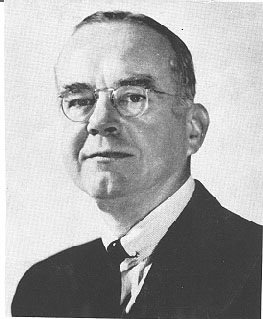
Leninism is a political ideology developed by Russian Marxist revolutionary Vladimir Lenin that proposes the establishment of the dictatorship of the proletariat led by a revolutionary vanguard party as the political prelude to the establishment of communism. Lenin's ideological contributions to the Marxist ideology relate to his theories on the party, imperialism, the state, and revolution. The function of the Leninist vanguard party is to provide the working classes with the political consciousness and revolutionary leadership necessary to depose capitalism.
State capitalism is an economic system in which the state undertakes business and commercial economic activity and where the means of production are nationalized as state-owned enterprises. The definition can also include the state dominance of corporatized government agencies or of public companies in which the state has controlling shares.

Trotskyism is the political ideology and branch of Marxism developed by Russian revolutionary Leon Trotsky and some other members of the Left Opposition and Fourth International. Trotsky described himself as an orthodox Marxist, a revolutionary Marxist, and a Bolshevik–Leninist as well as a follower of Marx, Engels, Vladimir Lenin, Karl Liebknecht, and Rosa Luxemburg.

The Fourth International (FI) was established in France in 1938 by Leon Trotsky and his supporters, having been expelled from the Soviet Union and the Communist International.

James Burnham was an American philosopher and political theorist. He chaired the New York University Department of Philosophy; his first book was An Introduction to Philosophical Analysis (1931). Burnham became a prominent Trotskyist activist in the 1930s. He later rejected Marxism and became an even more influential theorist of the political right as a leader of the American conservative movement. His book The Managerial Revolution, published in 1941, speculated on the future of capitalism. Burnham was an editor and a regular contributor to William F. Buckley's conservative magazine National Review on a variety of topics. He rejected containment of the Soviet Union and called for the rollback of communism worldwide.
Shachtmanism is the form of Marxism associated with Max Shachtman (1904–1972). It has two major components: a bureaucratic collectivist analysis of the Soviet Union and a third camp approach to world politics. Shachtmanites believe that the Stalinist rulers of proclaimed socialist countries are a new ruling class distinct from the workers and reject Trotsky's description of Stalinist Russia as a "degenerated workers' state".
Max Shachtman was an American Marxist theorist. He went from being an associate of Leon Trotsky to a social democrat and mentor of senior assistants to AFL–CIO President George Meany.
In political ideology, a deviationist is a person who expresses a deviation: an abnormality or departure. In Stalinist ideology and practice, deviationism is an expressed belief which does not accord with official party doctrine for the time and area. Accusations of deviationism often led to purges. Forms of deviationism included revisionism, dogmatism, and bourgeois nationalism.
Bruno Rizzi was an Italian unorthodox political theorist.
The Leninist League was a communist political party in the United States. It published a newspaper called "In Defense of Bolshevism".
The Revolutionary Marxist League was a small Communist sect that existed from 1938 to 1939 or 1940 in New York City. It was led by Meldon Joerger and Attilio Salemme.
Albert Glotzer (1908–1999), also known as Albert Gates, was a professional stenographer and founder of the Trotskyist movement in the United States. He was best remembered as the court reporter for the 1937 John Dewey Commission that examined the Stalinist charges against Trotsky in Mexico City and as a memoirist and activist in the social democratic movement in his later years.
The Spartacist League is a Trotskyist political grouping which is the United States section of the International Communist League, formerly the International Spartacist Tendency. This Spartacist League named themselves after the original Spartacus League of Weimar Republic in Germany, but has no formal descent from it. The League self-identifies as a "revolutionary communist" organization.
The Workers Party (WP) was a Third Camp Trotskyist group in the United States. It was founded in April 1940 by members of the Socialist Workers Party who opposed the Soviet invasion of Finland and Leon Trotsky's belief that the USSR under Joseph Stalin was still innately proletarian, a "degenerated workers' state." They included Max Shachtman, who became the new group's leader, Hal Draper, C. L. R. James, Raya Dunayevskaya, Martin Abern, Joseph Carter, Julius Jacobson, Phyllis Jacobson, Albert Glotzer, Stan Weir, B. J. Widick, James Robertson, and Irving Howe. The party's politics are often referred to as "Shachtmanite."
Bureaucratic collectivism is a theory of class society. It is used by some Trotskyists to describe the nature of the Soviet Union under Joseph Stalin and other similar states in Central and Eastern Europe and elsewhere.

The Revolutionary Workers League (RWL) was a radical left group in the United States, lasting from 1935 through 1946. It was led by Hugo Oehler and published The Fighting Worker newspaper.

James Patrick Cannon was an American Trotskyist and a leader of the Socialist Workers Party.
In Trotskyist political theory, a degenerated workers' state is a dictatorship of the proletariat in which the working class' democratic control over the state has given way to control by a bureaucratic clique. The term was developed by Leon Trotsky in The Revolution Betrayed and in other works.

The Socialist Workers Party (SWP) is a Trotskyist party in the United States. Originally a group in the Communist Party USA that supported Leon Trotsky against Soviet leader Joseph Stalin, it places a priority on "solidarity work" to aid strikes and is strongly supportive of Cuba. The SWP publishes The Militant, a weekly newspaper that dates back to 1928. It also maintains Pathfinder Press.
The anti-Stalinist left is a term that refers to various kinds of Marxist political movements that oppose Joseph Stalin, Stalinism, Neo-Stalinism and the system of governance that Stalin implemented as leader of the Soviet Union between 1924 and 1953. This term also refers to the high ranking political figures and governmental programs that opposed Joseph Stalin and his form of communism, such as Leon Trotsky and other traditional Marxists within the Left Opposition.







